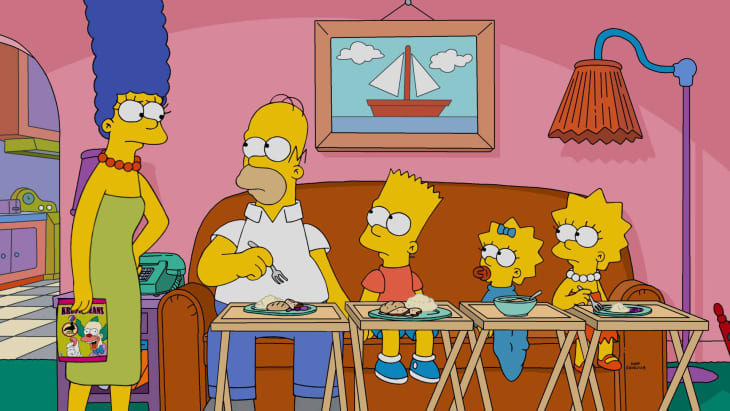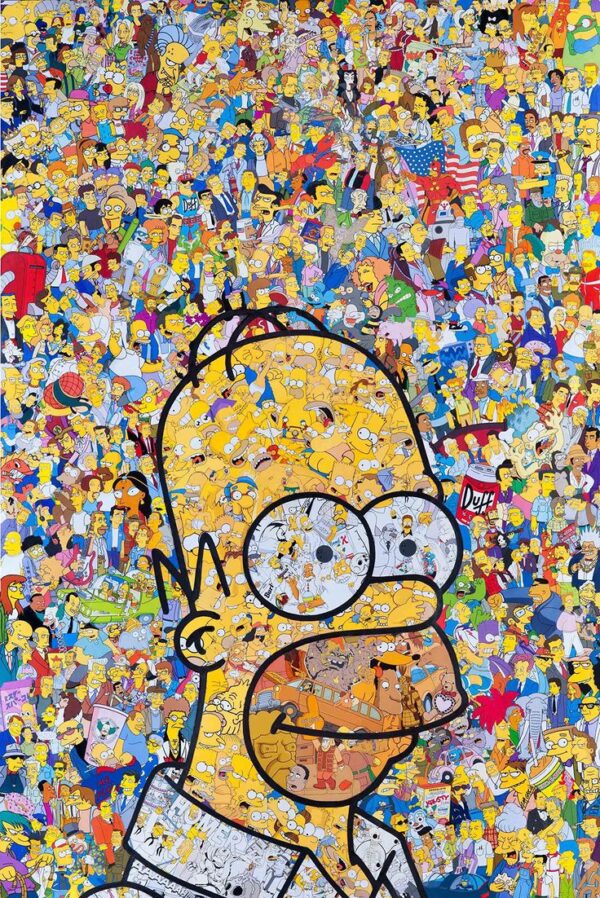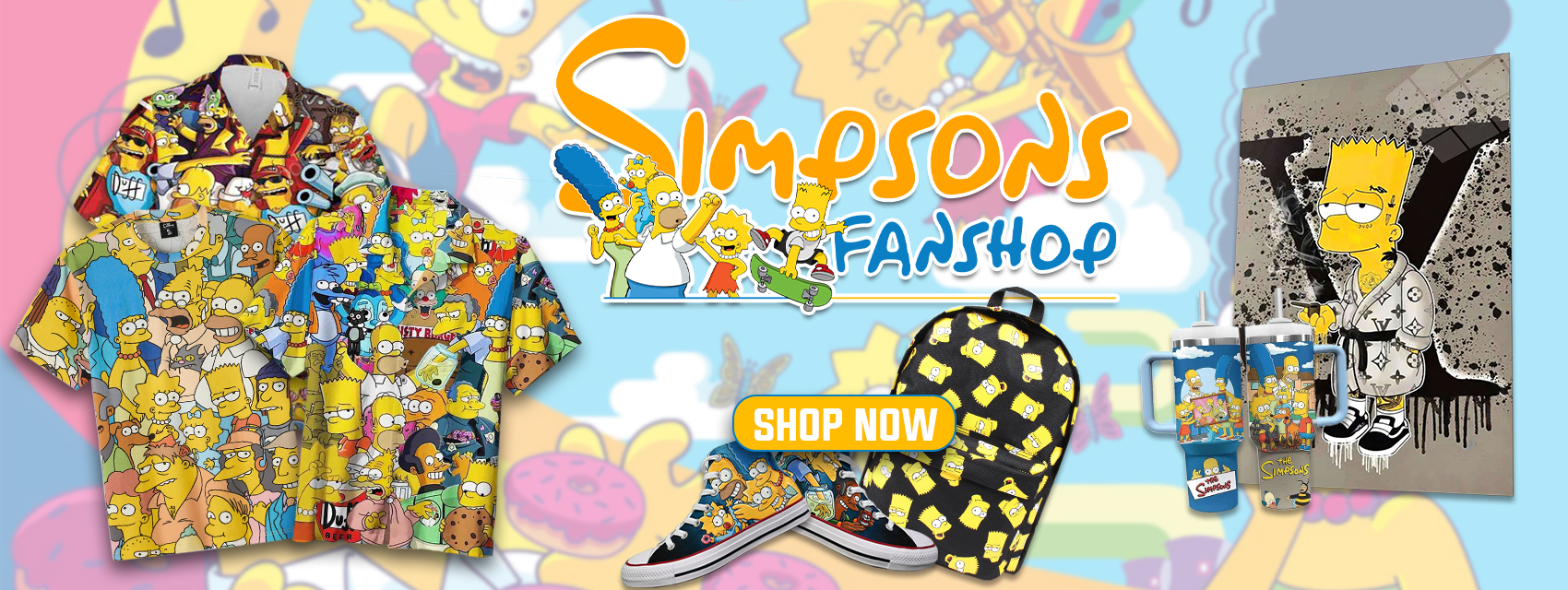Uncategorized
The Ultimate Guide to Simpson Cartoon Characters: Icons of American Animation
For over three decades, The Simpsons has captivated audiences worldwide with its memorable cast of cartoon characters. From the lovable Homer Simpson to the mischievous Bart, these animated personalities have become cultural icons that transcend generations. Whether you’re a longtime fan or new to Springfield’s yellow-skinned residents, understanding these Simpson Cartoon Characters are essential to appreciating one of television’s most enduring series.
The genius of Simpson cartoon characters lies in their relatability and timeless appeal. Each character represents different aspects of American society, making them instantly recognizable and emotionally resonant. This comprehensive guide explores the main characters, their development, and why they continue to influence popular culture today.
The Core Simpson Family: America’s Favorite Dysfunctional Household
At the heart of the series lies the Simpson family, a quintet of Simpson Cartoon characters that have defined animated comedy for generations. Each family member brings unique personality traits that create the perfect storm of humor and heart that fans have come to love.
Homer Simpson: The Everyman Hero
Homer Simpson stands as one of television’s most iconic Simpson Cartoon characters. As the family patriarch, Homer embodies the average American working man with his love for beer, donuts, and television. His famous catchphrases like “D’oh!” and “Mmm… beer” have entered everyday vocabulary.
Homer works at the Springfield Nuclear Power Plant as a safety inspector, despite his obvious lack of qualifications. His character represents the blue-collar worker who struggles with modern life’s complexities while maintaining an optimistic outlook. This relatability has made Homer a beloved figure across different demographics.

What makes Homer particularly endearing is his genuine love for his family, despite his many flaws. He may be lazy, impulsive, and often irresponsible, but his heart is always in the right place when it comes to Marge, Bart, Lisa, and Maggie.
Marge Simpson: The Family’s Moral Compass
Marge Simpson serves as the stabilizing force in the chaotic Simpson household. With her towering blue hair and patient demeanor, Marge represents the archetypal suburban mother who holds everything together. Her character development throughout the series showcases strength, intelligence, and unwavering dedication to her family.
Marge’s distinctive voice, provided by Julie Kavner, and her gentle “Mmm-hmm” responses have become signature elements of the show. She often serves as the voice of reason, offering sage advice and maintaining the family’s moral center during various crises and adventures.
Bart Simpson: The Rebellious Troublemaker
Bart Simpson revolutionized the portrayal of children on television. As the mischievous ten-year-old son, Bart embodies childhood rebellion and creativity. His pranks, skateboarding skills, and famous phrases like “Eat my shorts!” and “Don’t have a cow, man!” made him an instant cultural phenomenon.

Bart’s character challenged traditional family dynamics by portraying a child who was smarter than his parents in many ways. His anti-establishment attitude resonated with audiences and influenced countless other animated Simpson Cartoon characters that followed.
Lisa Simpson: The Intellectual Prodigy
Lisa Simpson represents intelligence, activism, and moral conviction. As an eight-year-old saxophone-playing Buddhist vegetarian, Lisa defies typical childhood stereotypes. Her character often addresses complex social and political issues, making her one of television’s most progressive young characters.
Lisa’s academic excellence and strong moral compass often put her at odds with Springfield’s more conventional residents. Her episodes frequently tackle important topics like environmentalism, social justice, and educational reform, showcasing the show’s ability to blend entertainment with meaningful commentary.
Maggie Simpson: The Silent Observer
Maggie Simpson, the youngest family member, communicates primarily through her iconic pacifier sucking sound. Despite being a baby, Maggie has been involved in numerous adventures and has shown remarkable intelligence and capabilities throughout the series.
Her silent presence allows for visual comedy and serves as a canvas for viewers’ imaginations. Maggie’s occasional words and actions often provide some of the series’ most touching and surprising moments.
Iconic Supporting Characters That Define Springfield
Beyond the Simpson family, the show’s rich tapestry of supporting Simpson Cartoon characters creates a vibrant community that feels authentically lived-in. These Simpson Cartoon characters represent various aspects of American society and contribute to the show’s satirical depth.
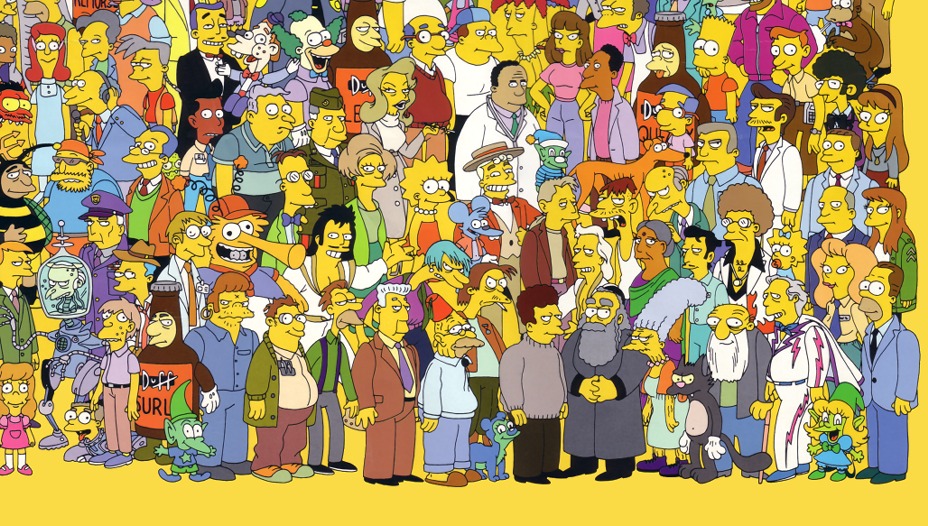
Ned Flanders: The Perfect Neighbor
Ned Flanders serves as Homer’s overly religious and cheerful neighbor. His character parodies extreme religiosity and suburban perfection. Ned’s unwavering faith, positive attitude, and moral superiority often frustrate Homer, creating comedic tension between the families.
Despite being the target of Homer’s jealousy and anger, Ned consistently shows kindness and forgiveness. His character development, particularly after his wife’s death, added emotional depth to what could have been a one-dimensional religious caricature.
Moe Szyslak: The Gruff Bartender
Moe Szyslak operates Moe’s Tavern, Homer’s favorite hangout spot. His gravelly voice and cynical worldview provide a perfect contrast to the show’s more optimistic Simpson Cartoon characters. Moe’s unrequited love interests and various business ventures showcase his complexity beyond the stereotypical bartender role.
Chief Wiggum and Ralph: Springfield’s Finest
Chief Clancy Wiggum represents incompetent authority figures, while his son Ralph Wiggum embodies innocent childhood confusion. Ralph’s non-sequitur statements and Chief Wiggum’s bumbling police work provide consistent comic relief while commenting on institutional inefficiency.
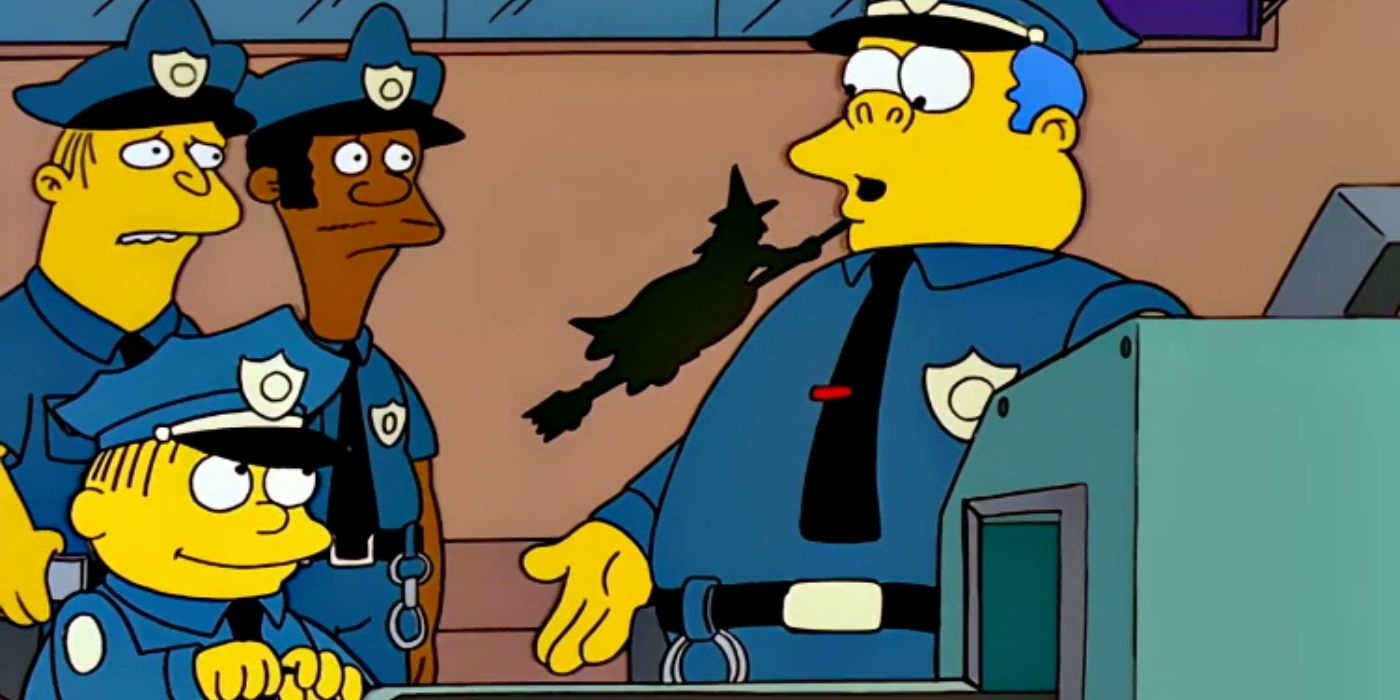
Apu Nahasapeemapetilon: The Hardworking Immigrant
Apu runs the Kwik-E-Mart convenience store and represents the immigrant experience in America. His character has evolved significantly over the years, addressing stereotypes while celebrating multiculturalism. Apu’s work ethic, family values, and integration into Springfield society reflect real immigrant experiences.
Character Evolution and Development Over Three Decades
One of The Simpsons’ greatest strengths lies in its character development over more than 750 episodes. Unlike many animated series, Simpson Cartoon characters have grown and evolved while maintaining their core personalities.
The show’s creators have masterfully balanced character consistency with growth, allowing longtime viewers to witness subtle changes while keeping Simpson Cartoon characters recognizable to new audiences. This evolution has kept the series fresh and relevant across multiple generations.
Animation Style and Character Design Evolution
The distinctive Simpson cartoon character design has become instantly recognizable worldwide. The yellow skin, four-fingered hands, and exaggerated features create a unique aesthetic that sets the show apart from other animated series.
Over the years, the animation quality has improved significantly while maintaining the original character designs’ charm. The evolution from crude early animation to today’s polished production values demonstrates the show’s commitment to visual excellence.

Cultural Impact and Merchandise Appeal
Simpson cartoon characters have transcended their television origins to become global cultural phenomena. Their images appear on everything from t-shirts and mugs to sophisticated collectibles and print-on-demand merchandise.
The characters’ universal appeal stems from their archetypal nature combined with specific personality quirks that make them memorable. This combination creates perfect merchandise opportunities for fans who want to express their connection to specific characters.
Print-on-Demand Success Stories
The popularity of Simpson character merchandise continues to grow in the print-on-demand market. Fans consistently seek products featuring their favorite Simpson Cartoon characters, from Homer’s iconic “D’oh!” expressions to Lisa’s saxophone-playing poses.
- Character Quotes: T-shirts featuring memorable catchphrases remain bestsellers
- Minimalist Designs: Simple character silhouettes appeal to modern aesthetic preferences
- Mashup Concepts: Characters combined with other pop culture elements create unique products
- Seasonal Themes: Holiday-themed character designs perform exceptionally well
Lesser-Known Characters That Deserve Recognition
While the main Simpson Cartoon characters receive most attention, The Simpsons features hundreds of supporting characters who contribute to Springfield’s rich community atmosphere. These Simpson Cartoon characters often provide some of the series’ most memorable moments.
Professor Frink: The Mad Scientist
Professor Frink represents scientific advancement and intellectual curiosity in Springfield. His Jerry Lewis-inspired mannerisms and impossible inventions provide both comedy and commentary on technology’s role in society.
Comic Book Guy: The Stereotypical Nerd
Comic Book Guy embodies nerd culture before it became mainstream. His condescending “Worst. Episode. Ever.” catchphrase and encyclopedic knowledge of pop culture trivia make him a favorite among fans who see themselves in his character.
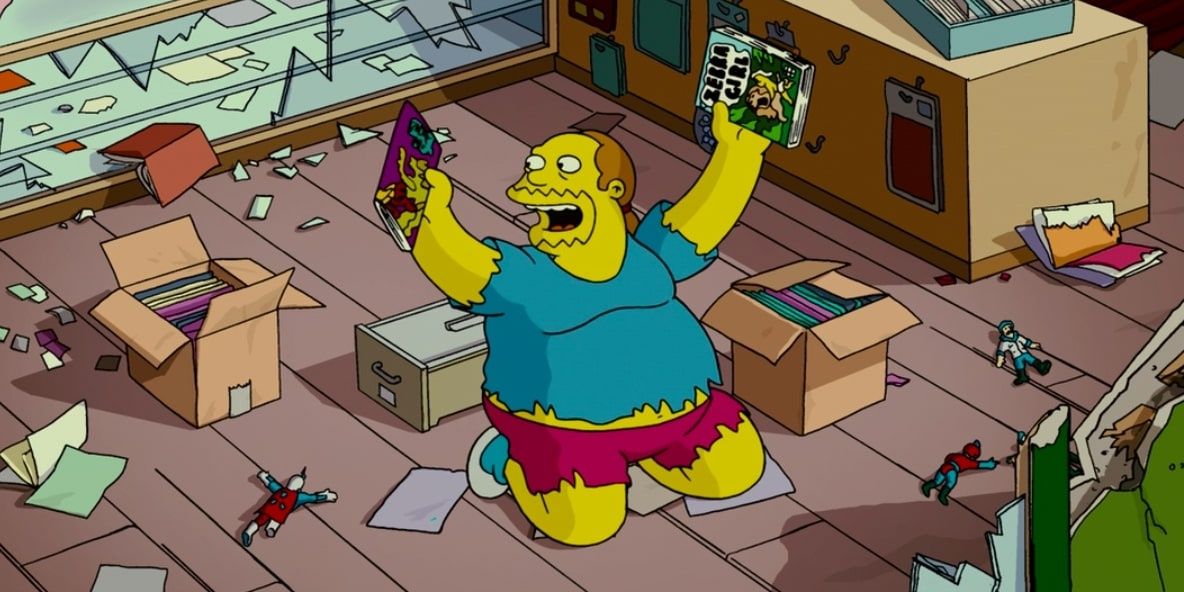
Groundskeeper Willie: The Scottish Stereotype
Groundskeeper Willie brings Scottish culture and working-class pride to Springfield Elementary. His thick accent, violent tendencies, and surprising depth make him more than just comic relief.
The Psychology Behind Character Popularity
The enduring popularity of Simpson cartoon characters can be attributed to their psychological authenticity. Each character represents different aspects of human nature, allowing viewers to connect with multiple characters for different reasons.
Research in media psychology suggests that audiences form parasocial relationships with fictional Simpson Cartoon characters, and The Simpsons characters excel at fostering these connections. Their flaws make them relatable, while their consistency provides comfort and predictability.
“The Simpsons characters work because they’re exaggerated versions of people we know, including ourselves. They allow us to laugh at human foibles while recognizing our own imperfections.” – Animation Psychology Expert
Character Merchandise Design Trends
The Simpson character merchandise market continues evolving with contemporary design trends. Understanding these trends helps fans and creators develop products that resonate with current audiences while honoring the characters’ legacy.
Modern merchandise focuses on minimalist designs that capture character essence without overwhelming detail. This approach works particularly well for print-on-demand products where simplicity often translates to better production quality and broader appeal.
Popular Design Categories
- Vintage-Style Designs: Retro color palettes and distressed effects
- Quote-Based Products: Character catchphrases in stylized typography
- Character Mashups: Simpson characters in different artistic styles
- Minimalist Portraits: Simple line art capturing character essence
- Scene Recreation: Iconic moments from memorable episodes
Future of Simpson Characters in Pop Culture
As The Simpsons continues production and reaches new audiences through streaming platforms, the characters’ cultural relevance shows no signs of diminishing. New generations discover these characters while longtime fans maintain their connections through nostalgia and continued enjoyment.
The characters’ ability to adapt to contemporary issues while maintaining their core personalities ensures their continued relevance. This adaptability makes them perfect subjects for ongoing merchandise development and creative interpretation.
Frequently Asked Questions About Simpson Characters
Who is the most popular Simpson character?
Homer Simpson consistently ranks as the most popular character due to his relatability and iconic status. However, character popularity varies by demographic and region, with Bart and Lisa also maintaining strong fan bases.
How many Simpson characters exist in total?
The Simpsons universe includes over 800 named characters across all episodes, making it one of the largest character rosters in television history. This extensive cast contributes to Springfield’s authentic community feel.
Which Simpson character appears in the most episodes?
While exact counts vary, Homer Simpson appears in nearly every episode, followed closely by other family members. Supporting characters like Ned Flanders and Moe Szyslak also maintain high appearance frequencies.
Are Simpson characters based on real people?
Many characters draw inspiration from real people, including the show’s creators, voice actors, and public figures. However, they’re typically composite characters combining multiple inspirations rather than direct representations.
Collecting and Displaying Simpson Character Merchandise
For fans interested in Simpson character collectibles, understanding quality, authenticity, and display options enhances the collecting experience. The vast merchandise ecosystem ranges from budget-friendly items to premium collectibles.
Print-on-demand products offer unique advantages for collectors seeking personalized or limited-design items. These products often feature creative interpretations not available through traditional licensing arrangements, making them valuable additions to any collection.
Conclusion: The Timeless Appeal of Springfield’s Residents
Simpson cartoon characters have achieved something remarkable in entertainment history: they’ve created a fictional community that feels more real than many actual places. Through their adventures, misadventures, and everyday struggles, these characters have taught us about family, friendship, and the absurdities of modern life.
Their continued popularity in merchandise, memes, and popular culture references demonstrates their lasting impact on global consciousness. Whether you’re drawn to Homer’s lovable incompetence, Lisa’s unwavering principles, or Bart’s rebellious spirit, there’s a Simpson character that speaks to everyone.
As fans continue discovering new ways to celebrate these beloved Simpson Cartoon characters through custom merchandise and collectibles, The Simpsons’ legacy grows stronger. These Simpson Cartoon characters aren’t just animated drawings; they’re cultural touchstones that connect generations and continue inspiring creativity worldwide.
The world of Springfield remains as vibrant and relevant today as it was over thirty years ago, proving that truly great Simpson Cartoon characters transcend their medium to become part of our shared human experience. D’oh!

